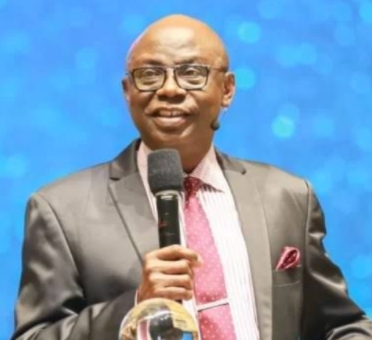The Serving Overseer of the Citadel Global Community Church (CGCC), Pastor Tunde Bakare on Sunday said the country is too delicate for the kind of politics allegedly being played by President Bola Tinubu through weakening established institutions and subjugating the people to have his way.
The Lagos fiery preacher who stated this at a state of the nation broadcast on Sunday in Lagos cautioned President Tinubu against “playing God,” noting that his administration was steering the nation off course.
Bakare lamented that the country was descending into tyranny and brazen abuse of power, adding that the legislature, a bastion of democracy has become ‘spineless and collapsing’ under the watch of the President.
The former Vice-Presidential candidate under the defunct Congress for Progressive Change (CPC), slammed the President over what he called the seeming state capture, saying, ‘’To the President of the Federal Republic of Nigeria, under whose brand of politics the institution of legislative oversight is collapsing and our democracy is faced with an existential threat, I say: Mr. President, Nigeria is too delicate for this kind of politics.
‘’If this state capture was what you meant by ‘emi lo kan,’ it is an anti-climax that can only be counterproductive in the end. I urge you, Mr. President, to think deeply and reflect on these words: No man is wise enough nor good enough to be trusted with unlimited power. Please, stop playing God!’’
Bakare who said he did not want the President to fail also criticised the National Assembly over the suspension of Kogi Central Senator, Natasha Akpoti-Uduaghan.
He challenged the rationale for suspending the Senator for demanding accountability and transparency from the Senate President, Senator Godswill Akpabio.
“This NASS by its unconstitutional endorsement of the President’s abuse of office is the most spineless in recent history,” he said.
Dwelling on the economic policies of the President Tinubu’s led government he said, ‘’Whether we like it or not, this administration holds the reins of our economy, and we cannot allow them to flush it down the drain.”
Referencing the fuel subsidy removal and exchange rate regimes of the current administration, Bakare said, “Within a year and a half of this administration, the implementation of the otherwise audacious economic policies triggered an avalanche of economic hardships for the Nigerian people. It led to excruciating food inflation, with over a million additional Nigerians thrown into severe food insecurity.”
He noted that this led to over 430 per cent increase in fuel price as of October 2024 when at the same time, Nigeria experienced the highest-ever rate of currency depreciation, and the lowest Foreign Direct Investment record going by data traced back to 2013 as multinationals began to exit the country.
He added that Nigeria has one of the world’s highest misery indexes, with many Nigerians experiencing a cost of living crisis and weak purchasing power due to rising inflation.
Bakare noted that, “While it is not in dispute that difficult economic reforms come with costs and are usually associated with periods of hardship, four essentials must be taken into consideration when driving reforms.”
He highlighted the essentials to include empathy, methodology, transparency and responsibility.
Bakare said empathy will lead leaders to understanding and sharing in the plight of the people, methodology will aid a systematic deployment of tools to cushion the biting effects of reforms; transparency will mandates governments to act openly and to carry the citizens along at every major decision point in the reform journey; while responsibility on the part of leaders make them to take the lead in bearing the difficult and painful impacts of reforms.
On the problem of insecurity, the cleric recommended the reinstatement of national security federalism by activating constitutional procedures for multilevel policing, to include local, state and zonal policing systems.
“Against this backdrop, we must redesign our security architecture by facilitating the formation of Zonal Security Councils chaired by a governor from the respective zone on a rotating basis.
‘’Such Zonal Security Councils, which will be formed by state and local policing systems within respective zones, must be managed by nonpartisan security experts while the Chairperson at each point in time will represent the zone at the National Security Council,‘’ he said.











